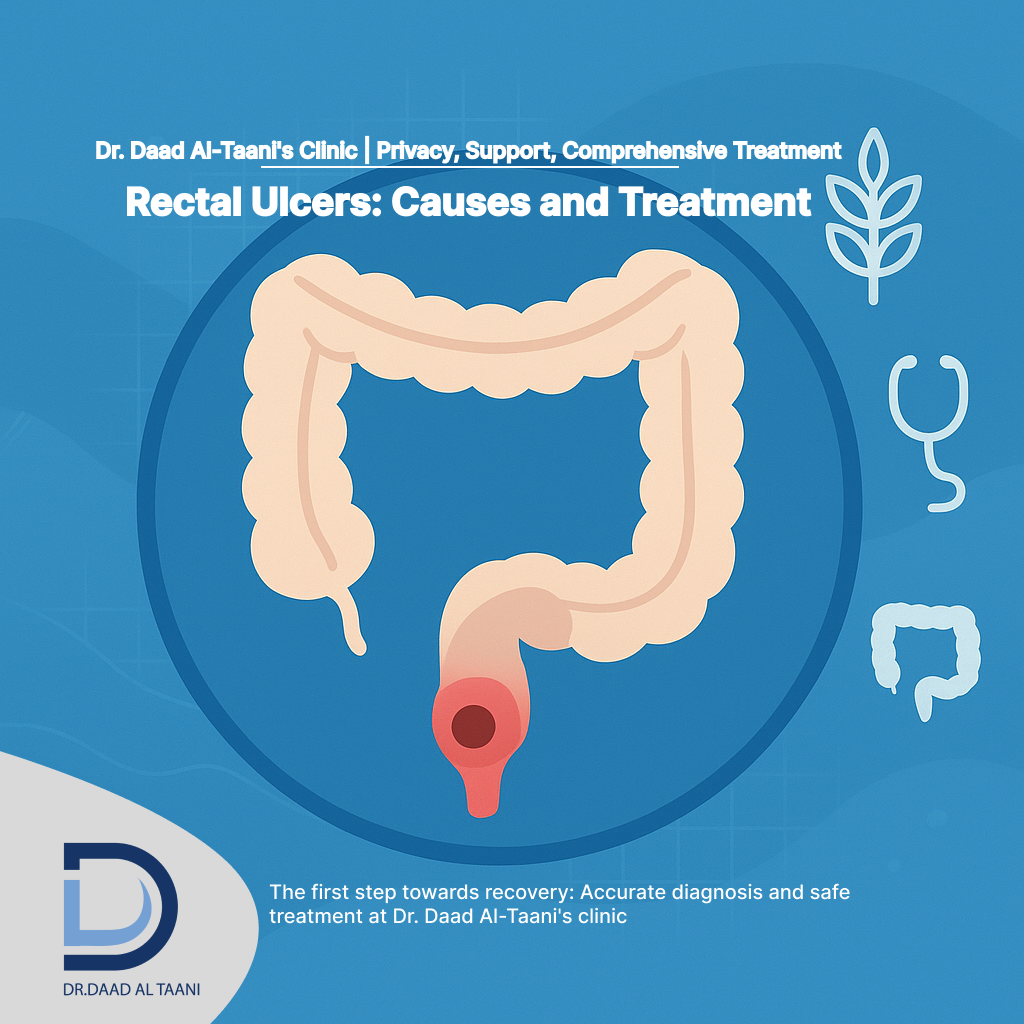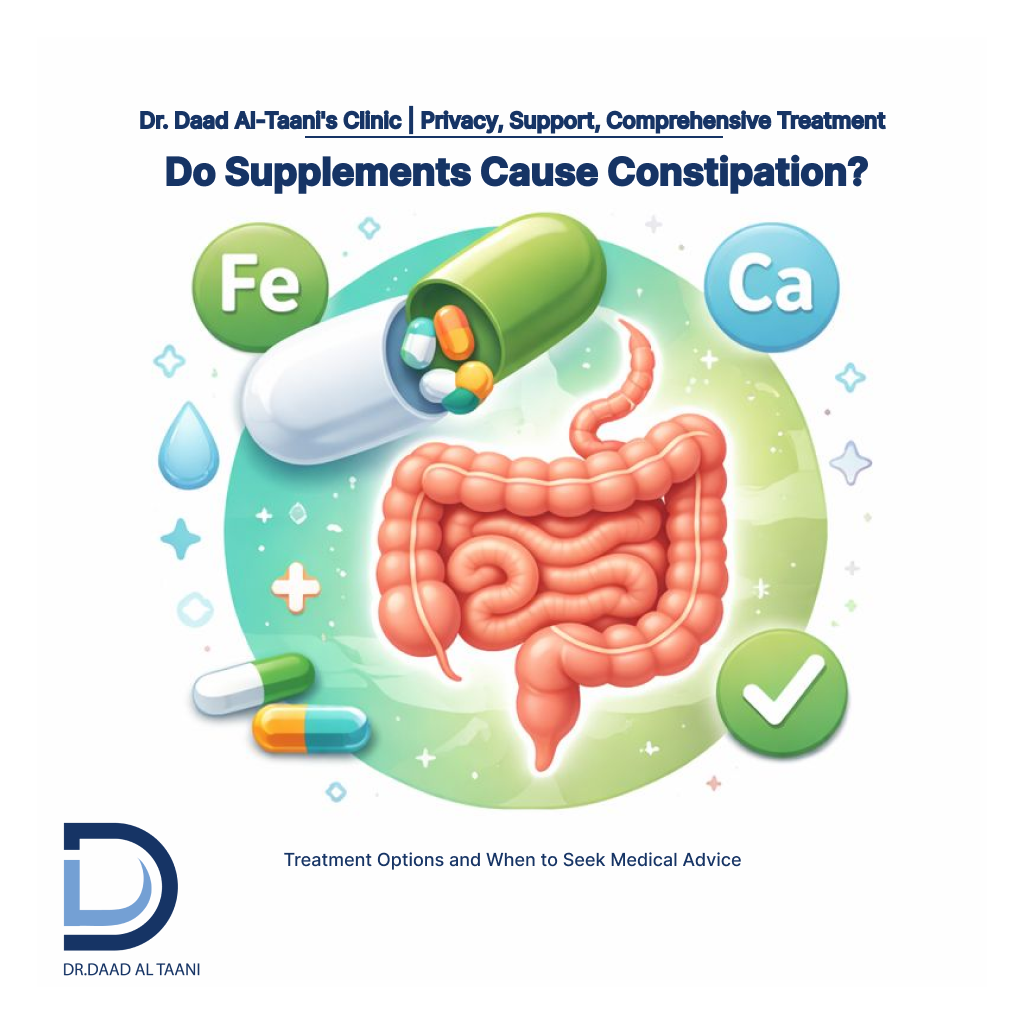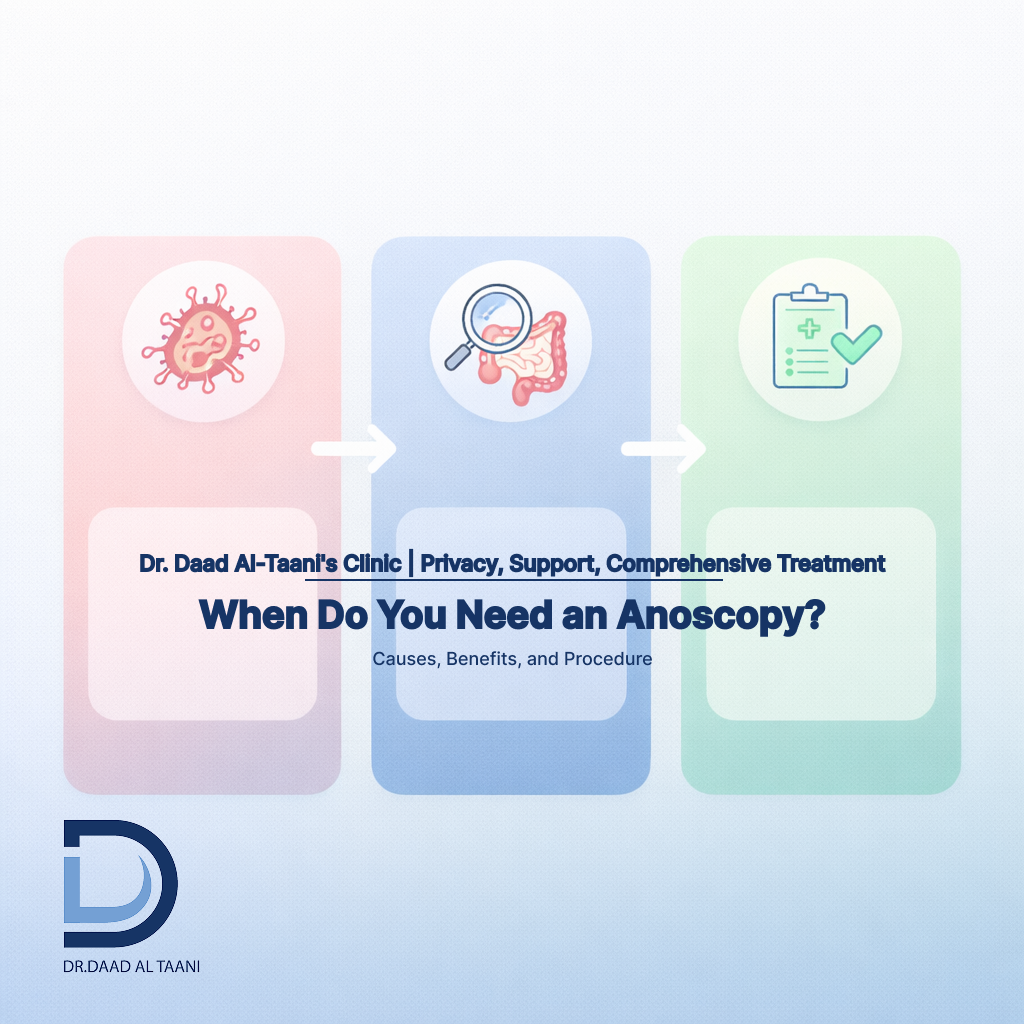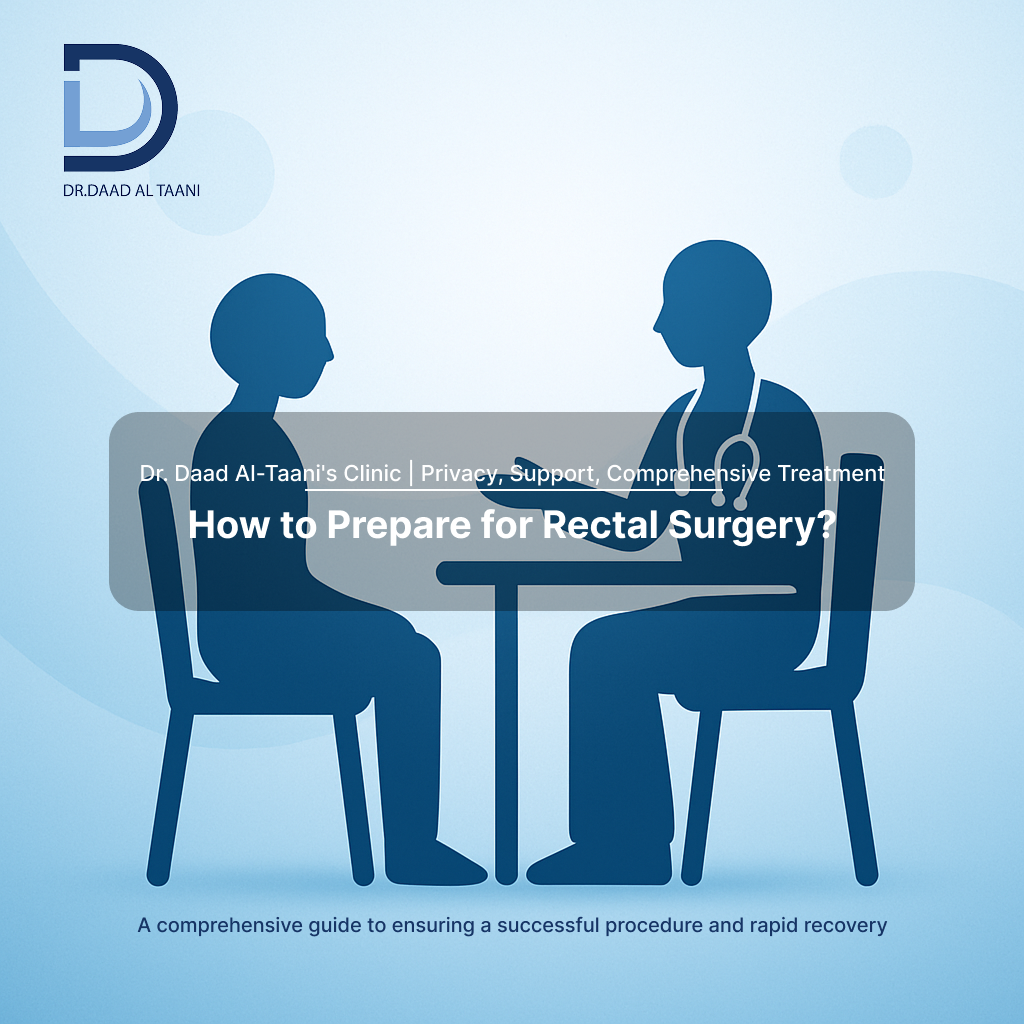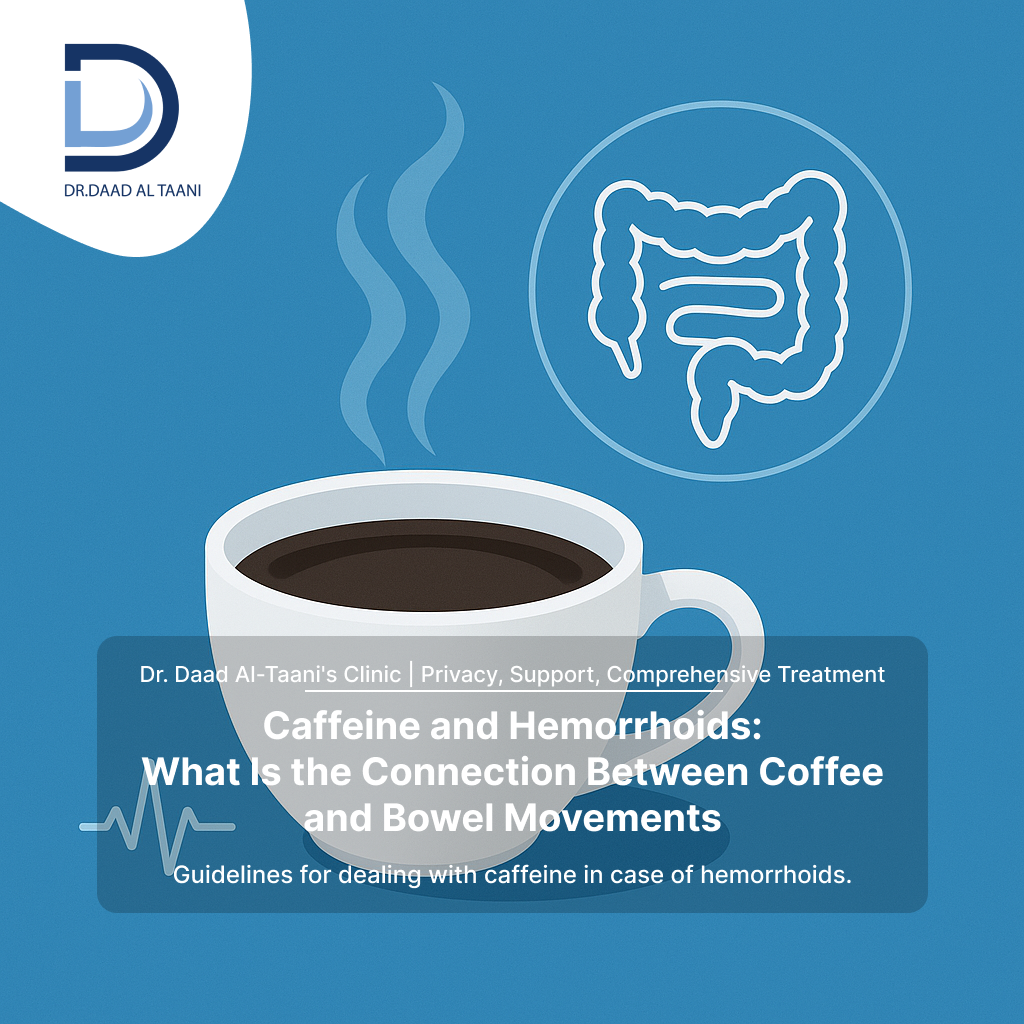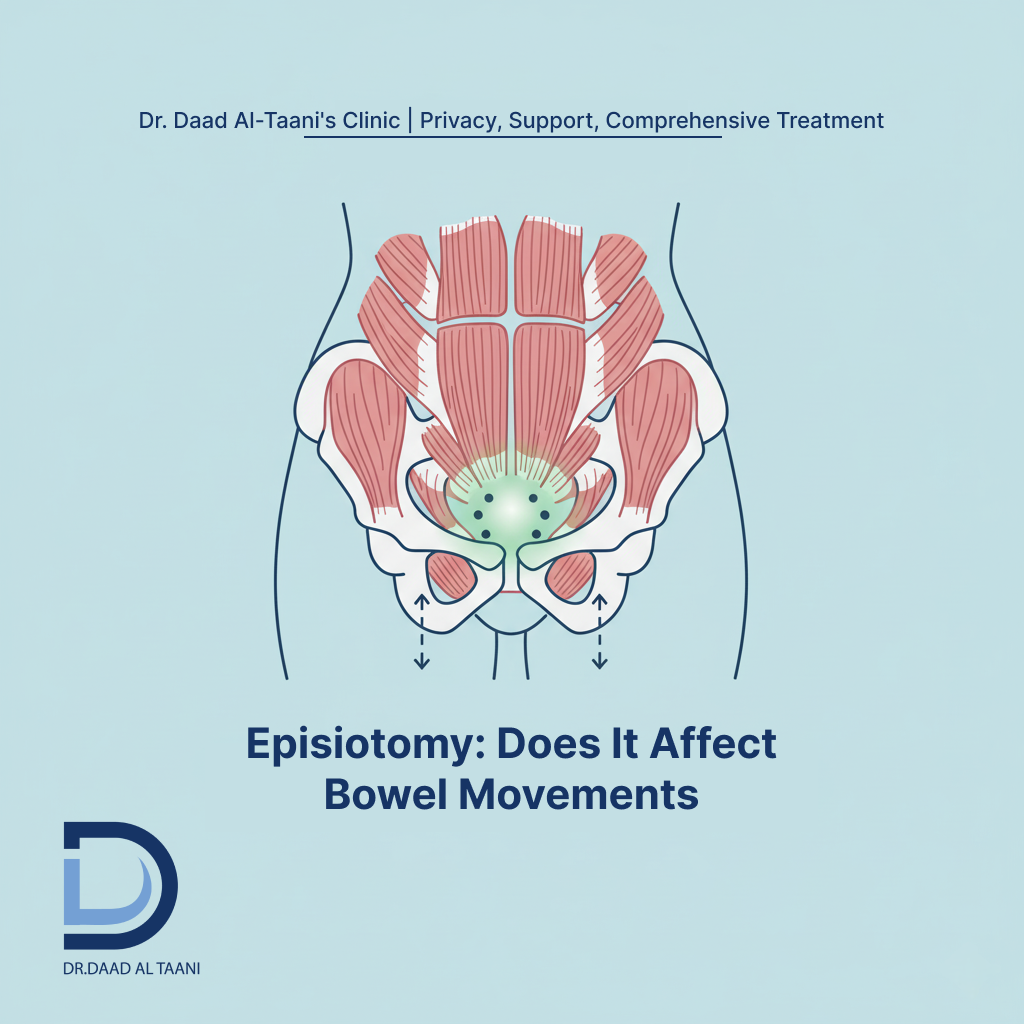Rectal ulcers are a sensitive but treatable condition that can cause significant discomfort and affect daily life quality. Many people hesitate to discuss it due to embarrassment, but understanding its causes and treatments is the key to recovery.
This article explores the main causes, symptoms, and treatment options available at Dr. Daad Al Taani Clinic.

